
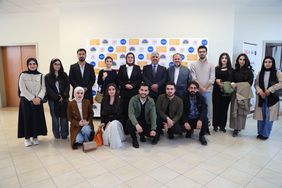
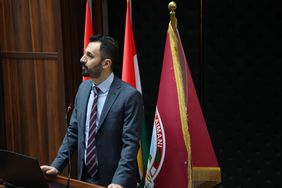

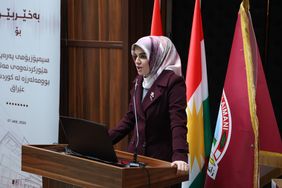

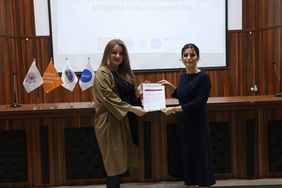
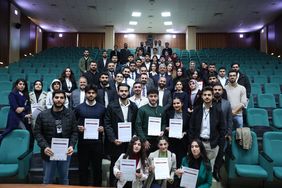
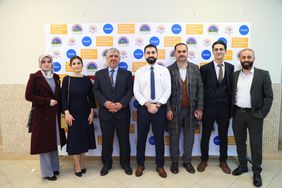
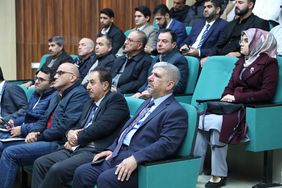
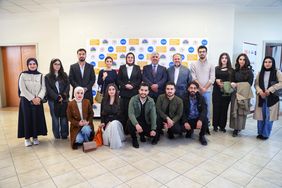
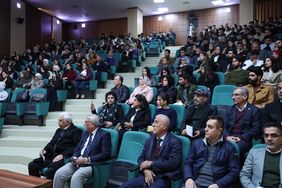
Symposium on »Seismic Risk Mitigation in Iraq« concludes successfully in Erbil
About the Research Project
This project initiative, led by Bauhaus University Weimar in collaboration with the University of Sulaimani (UoS), Tishk International University (TIU), and the Joint Crisis Coordination Center (JCC), focuses on evaluating the vulnerability of existing buildings in Iraq. Utilizing advanced methodologies, field surveys, and multi-hazard risk assessment approaches, the project aims to develop improved strategies for mitigating seismic risks, the project also aims to establish a Hazard Assessment Network in Iraq to foster ongoing research and cooperation.
As a part of the study, data from 4,700 buildings in the city of Slemani were analyzed, processed, and their seismic vulnerabilities assessed. The results of these studies were published in the Third Croatian Conference for Earthquake Engineering. The collection of the dataset and the subsequent publication were conducted in collaboration with partner universities. Additionally, bachelor students studying at partner universities were trained in state-of-the-art seismic hazard and vulnerability assessment techniques, applying their knowledge through practical work. In recognition of their efforts, these students were awarded certificates for their contributions to the project.
Symposium Highlights
The symposium, which took place on January 7, 2025, was a key component of the research stay of PhD students Peshawa Luqman Hasan and Baban Bapir from the Chair of Advanced Structures at Bauhaus University Weimar. Their research stay, which facilitated the dissemination of the project's key findings, underscores the university’s commitment to fostering academic exchange and knowledge transfer between Germany and Iraq.
As the closing event for the project, the symposium provided a platform to share the outcomes of the building stock survey and vulnerability assessment with a diverse audience. The attendees included university students, faculty members from various Iraqi universities, government officials, representatives from public construction companies, and non-technical stakeholders interested in seismic resilience and disaster preparedness.
Key Discussions and Outcomes
The event featured a range of technical sessions and discussions, covering topics such as:
- Project Highlights: Presentation of objectives, methodologies, and key findings.
- Field Survey Results: Insights into vulnerability classifications and hazard mapping for existing buildings in Slemani.
- Technical Research Contributions: Analysis of seismic risk factors and proposed mitigation strategies.
- Student Engagement: Previous participants of the Bauhaus Summer School from Iraq presented their experiences with the course and their time in Weimar.
Strengthening Future Collaborations
The symposium also served as a platform to discuss the establishment of a long-term Hazard Assessment Network in Iraq, aimed at sustaining research efforts beyond the project's official conclusion. This initiative will enable continued collaboration between academia and industry, ensuring that research findings translate into actionable policies and engineering practices in Iraq.
Through this project and the successful conclusion of the symposium, the Chair of Advanced Structures at Bauhaus University Weimar reaffirms its commitment to international collaboration in earthquake resilience research. The outcomes of this initiative will not only contribute to safer urban planning in Iraq but also serve as a model for similar hazard mitigation efforts worldwide.
